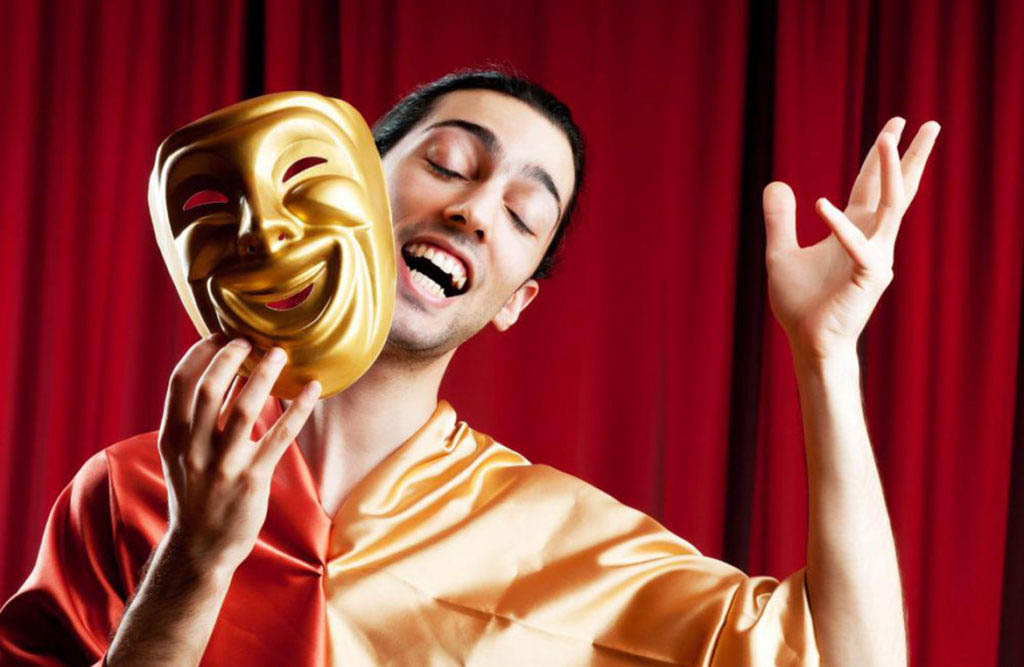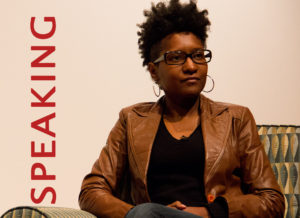If you’re a marginalized person who’s involved in activist work, or who spends a lot of time on social media, or both, you almost certainly deal with a lot of so-called “allies” whose idea of “allyship” is so convoluted you’d rather just do without it.
From white fragility to cis fuckery, from “I’m on your side, so you should be nicer ” to “educate me!”, “allyship” has become more pointless performance than anything actually useful to marginalized people. That’s why I’ve long since stopped using the word at all, except in snarky quotation marks.
A couple of months ago, BGD columnist and editor Princess Harmony Rodriguez coined the term “ally theater” in a piece criticizing the way that so-called “allies” perform on social media. What Harmony highlights in that piece is but a fraction of the theatrics we see so-called “allies” performing every day.
Just a few days ago on Twitter, I was tweeting about criticism of the #Zola story and how my distrust of white women influences my view of innocence and villainy. Having experienced so much violence from white women over the years, I’m skeptical of anything that paints a white woman as the innocent victim and a black woman as the villain. Because my experience is that white women can do ANYTHING to us and still be seen as the victim and us as the villain. I don’t trust white women. And I tweeted exactly that.


And, wouldn’t you know it, an “ally” chimed in.

Okay, first of all: what I said wasn’t for her. Newsflash: not everything a black person says about their life is for your consumption and feedback, non-black people.
Secondly, this is exactly what we mean when we talk about ally theater. What is this woman’s response meant to convey, really? How is it in any way useful?
Spoiler alert: it’s not. It’s no more than a thinly-veiled “I’m not like other white people” wrapped up in “your pain is interesting reading material, thanks!”
This woman’s need to take up space in some way, any way, her need to perform allyship, publicly, so everyone can see how “good” she is, how different she is, is so overwhelming that, seeing my tweets, she can’t bring herself to just shut up. It should be obvious that the very last person I want to hear from in that moment is a random ass white woman. I just tweeted about the significant pain and harm white women have caused me and this woman’s response is “thanks for saying that.”
Girl, if you don’t GTFOH.
And she’s certainly not alone. A LOT of people do this. A LOT of people perform “allyship” in ways that are actually really harmful. This, folks, is ally theater. And there is a big difference between it and real solidarity. Lots of differences, really. Here are a few that I experience regularly:
1. Real solidarity doesn’t require an audience to witness what a good “ally” you are
Lots of so-called “allies” are in it for the cookies and it shows. Boy oh boy, does it show. Even if they think it doesn’t show, it shows. Cookie-seeking “allies” require an audience for every performance, from bit part to starring role. Fighting oppression, for these folks, isn’t worth it unless everybody can see them doing it.
On social media, their “allyship” often looks like sharing or retweeting other people’s racist or misogynist or transphobic comments and attaching their own outraged pushback, as if to say, “OMG look everybody! This person is so oppressive! Watch me check them! Look! Over here! See what I’m doing? Loooook!”
It never occurs to the cookie-seeker in question that 9 times out of 10, no one was ever going to see that random racist/misogynist/transphobic comment made by an egg account with 12 followers in the first place, if not for them RTing it. But, hey. Needlessly exposing oppressed people to more violence is worth it if everyone gets to see what a great “ally” you are, right?
Consider the following scenario:
Someone tweets something offensive at a queer person of color. Does solidarity look like:
a. retweeting the offensive comment with a “OMG this is so messed up!” thrown in
b. responding to the vile comment, making sure to include the queer person of color it was directed at in the response, so they can see you being an “ally” and sticking up for them
c. responding only to the commenter, without RTing and without including the queer person of color in the response at all
Anything other than c is ally theater.
Real solidarity doesn’t require an audience or a pat on the back. If a troll gets checked and absolutely no one is around to hear it (or hear about it later), it still makes a sound. I promise.
Also, it’s very possible that the person at whom the offensive tweet was directed doesn’t want to engage the troll. You forcing them into an exchange is violence, not solidarity.
Bring Mia McKenzie to your college or community event!
2. Ally theater features lots of poorly-disguised cries of “not all _______” and “I’m not like other ______”
Overt cries of “not all white people”, “not all men”, etc. have become so common that they’re a joke among socially-conscious social media types. Some privileged person jumps into a conversation about privilege with “not all ______” and we laugh or roll our eyes or mock them or all three at once. “Not all” is oftentimes just straight-up derailment, an attempt to erase the realities of systemic oppression. Other times, it’s the person’s way of saying “not me” or “I’m not like other (insert oppressive group)”.
When it’s used simply to derail, it’s standard trolling. But when it’s used to say “not me!” we’re well on our way to ally theater.
I say “well on our way” because this is where it gets tricky. Because, see, “not all ______” has become such a loathed phrase, such an instant eyeroll, that experienced allyship performers know better than to say it. Saying it marks them as a troll and jeopardizes their standing as an Ally with a capital A and a gift certificate to Famous Amos Cookies.
The fact that they can’t say “not me!” doesn’t make the need to express “not me!” go away. The need is there, tugging at their ego like a high school handjob. Afterall, how will people know that they are an Ally with a capital A and a gift certificate to Famous Amos Cookies if they don’t make it clear they are NOT LIKE OTHER WHITE/STRAIGHT/CIS/ETC. PEOPLE??? They must find other ways to express the same “I’m not like other ________” sentiments without using the dreaded “not all”.
And now we arrive, right on time, at ally theater.
Consider this scenario:
A black woman tweets “Ugh this white woman just reached out and touched my hair without my consent! Why are white people so gross and entitled??” Does solidarity look like:
a. replying with “wow what is wrong with some white folks? I’m white and I would never think of doing that!”
b. replying with “many of us white people have been raised to feel entitled rather than to respect PoC”
c. replying with “sorry that happened”
d. not replying at all
Anything other than d (or sometimes c if you actually know the person) is ally theater.
Real solidarity isn’t about telling marginalized people, either directly or indirectly, that you’re not like the others or that you, as someone who is not like the others, are equipped to comment on how bad the others are.
Because 1) the only real way to not be like the others is to just not be like the others and 2) no matter someone’s personal views on any ‘ism’ or how great of an “ally” job they think they’re doing, they still benefit from being in a privileged group. The system is set up to benefit them and they don’t get to opt out because they think they’re down. In other words: they are like the others. That’s how privilege and supremacy work.
3. Real solidarity isn’t worn like a nametag
What is thing folks do where they put “ally” in their Twitter bio??? “Teacher, gardener, white ally. #BlackLivesMatter.”
LOL, no. Leave.
I’ve said this before, but “ally” isn’t a label we give ourselves.
Earlier this year, I was speaking at a university and a student of color shared with me her frustration with a white student who, whenever she was approached about some oppressive thing she did or said, got in her white girl feels and cried about how the PoC student was erasing her identity as an ally.
I was like:

“Ally” is an IDENTITY now??? Ugh. *dives off cliff*
Listen. Solidarity is action. That’s it. What we DO in solidarity is all that counts. How people with privilege listen to what marginalized groups ask of them and do that is all that counts.
Claiming “ally” as an identity and then using it to shield oneself from the criticism of those one says they’re an “ally” to is the opposite of solidarity.
Someone putting “ally” in their bio is a really easy way to let me know that they are, in fact, a cookie-seeker and, #sorrynotsorry, but I don’t bake.
So, there you go. Three important differences between real solidarity and ally theater that we can use to sort out the riff raff. Because, y’all: the riff raff desperately needs sorting out.
And if you’re a white and/or straight and/or cis and/or abled, etc. person trying to be in solidarity with oppressed people: before you jump up to perform “allyship” ask yourself, “is what I’m about to say or do in any way beneficial to the person I’m about to say or do it to? If so, how?”
If you can’t come up with a good answer, it’s likely just ally theater. Please back away from the stage.

 Want to bring Mia to talk race, queerness and feminism at your school or community event? She’s now booking for Fall 2017!
Want to bring Mia to talk race, queerness and feminism at your school or community event? She’s now booking for Fall 2017!